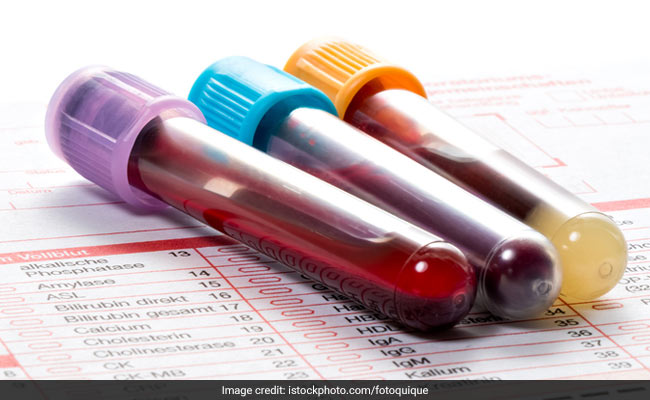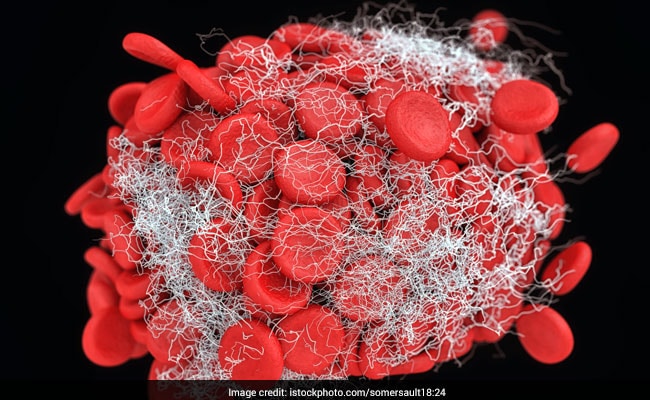World Thalassemia Day 2018: Thalassemia is an inherited blood disorder which is characterised by abnormal formation of haemoglobin in the body.

World Thalassemia day: Thalassemia shows very mild symptoms
HIGHLIGHTS
- World Thalassemia Day is celebrated on May 8
- An enlarged spleen might be a symptom of thalassemia
- Thalassemia can be inherited in the family
World Thalassemia Day 2018 is observed on May 8 across the world. Celebrated annually, the day is dedicated to people suffering from thalassemia and parents who didn't give up hope to live a good quality of life. Thalassemia is an inherited blood disorder which is characterised by abnormal formation of haemoglobin in the body. It results in damage of red blood cells and anaemia. A person suffering from thalassemia will have at least one of the parents as the carrier of the disease. Genetic mutation or deletion of some key gene fragments can lead to thalassemia. Common symptoms of thalassemia include bone deformities in several areas, especially in the dace, yellow or pale skin, dark urine, delayed growth and developments, excessive tiredness or fatigue. It has to be noted here that everyone do not have these visible symptoms of thalassemia. Some signs of the condition may develop only during later childhood or adolescence.

May 8 is celebrated as World Thalassemia Day
Photo Credit: iStock
What are the causes of Thalassemia?
Any abnormality or mutation in one or more genes which produce haemoglobin can cause thalassemia. This defect in genetics is inherited from parents. You may develop thalassemia minor if any one of your parents is carrier of the disease. Thalassemia minor is a form of disease in which you won't have any symptoms but you will be carrier of the disease. Symptoms of thalassemia minor are very mild.
If both parents are carriers of thalassemia, then the child is more prone to inheriting a more serious form of thalassemia.
Centres for Disease Control and Prevention (CDC) say that thalassemia is common in Asia, Africa, Middle East and Mediterranean countries such as Turkey and Greece.
Also read: World Thalassemia Day: Foods To Eat And Avoid
Types of thalassemia
Subtypes of thalassemia include beta thalassemia, alpha thalassemia and thalassemia minor. The symptoms and types of each subtype of thalassemia is different in terms of their kind and severity.
Beta thalassemia
This is a condition which occurs when body cannot produce enough beta globin. This kind of thalassemia has two subtypes, including thalassemia major and thalassemia intermedia. Of the two, thalassemia major is more severe than thalassemia intermedia. The former can be life threatening, including symptoms like fussiness, frequent infections, poor appetite, jaundice and enlarged organs. Thalassemia major patients need regular blood transfusions.
Thalassemia intermedia, on the other hand, is less severe and develops because of alteration in beta globin genes. Thalassemia intermedia patients do not require regular blood transfusions.
Alpha thalassemia
This kind of thalassemia is characterised by the body not making enough alpha globin. Haemoglobin H and hydrops fetails are the subtypes of alpha thalassemia. Haemoglobin H causes overgrowth of cheeks, forehead and jaw. It can also cause enlarged spleen, malnourishment and jaundice.
Hydrops fetails is a severe kind of thalassemia which occurs before birth. It either results in stillborns or death shortly after birth. The condition happens when all alpha globin genes go altered or missing.
Thalassemia minor
As mentioned above, people with thalassemia minor do not have symptoms, other than minor anaemia. If any one of your parents are relatives have thalassemia minor, then you must get yourself diagnosed for the disease.
Also read: World Thalassemia Day: All You Should Know About Thalassemia
How can Thalassemia be diagnosed?
A blood test is done to diagnose thalassemia. Blood sample is tested for anaemia or abnormal levels of haemoglobin. It is also seen to check the shape or red blood cells. A physical examination might be done for further diagnosis depending on the type of thalassemia and its severity. For instance, an extremely enlarged spleen might be indicative of haemoglobin H disease.
Effect of thalassemia on pregnancy
Thalassemia affects reproductive organ development during pregnancy. Women with thalassemia may suffer from fertility problems. To ensure health and safety of your baby, it is important to discuss your pregnancy plan with your doctor. Risk factors during pregnancy include risks of infections, gestational diabetes, heart problems, hypothyroidism, more number of blood transfusions and low bone density.
How to treat Thalassemia?
Thalassemia treatment is going to depend on the type of thalassemia and its severity. Blood transfusion, medications or supplements, bone marrow transplant or surgery to remove spleen or gallbladder might be removed by surgery.
How to manage thalassemia?
Thalassemia cannot be prevented, but it can be managed. Along with vaccines for hepatitis, you have to take a proper diet and exercise regularly. People with thalassemia are recommended to eat low-fat and plant-based diet. Food rich in iron should be consumed in limited amounts in case iron levels are high in your blood. Any dietary changes need to be consulted with your doctor.
Moderate intensity of exercise is important for people with thalassemia since heavy or intense workouts can worsen your symptoms. Include exercises like walking, cycling, swimming and yoga in your fitness regime.
Disclaimer: This content including advice provides generic information only. It is in no way a substitute for qualified medical opinion. Always consult a specialist or your own doctor for more information. NDTV does not claim responsibility for this information.
DoctorNDTV is the one stop site for all your health needs providing the most credible health information, health news and tips with expert advice on healthy living, diet plans, informative videos etc. You can get the most relevant and accurate info you need about health problems like diabetes, cancer, pregnancy, HIV and AIDS, weight loss and many other lifestyle diseases. We have a panel of over 350 experts who help us develop content by giving their valuable inputs and bringing to us the latest in the world of healthcare.














